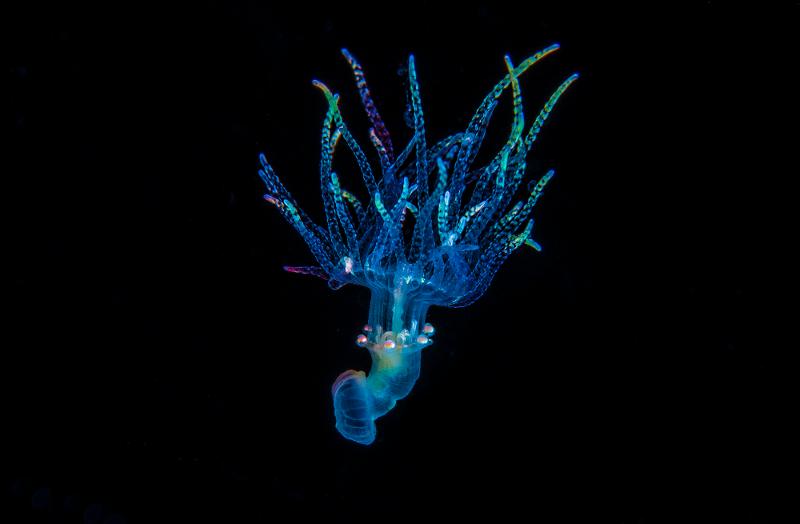In a groundbreaking move, the UK government has announced its support for a moratorium on deep sea mining. This decision comes in response to growing concerns about the potential impact of deep sea mining on marine ecosystems. By taking this stand, the UK is demonstrating its commitment to protecting the world's oceans and conserving marine biodiversity. Join us as we explore the reasons behind this decision and the potential implications for the future of deep sea mining.
The Impact of Deep Sea Mining on Marine Ecosystems
Explore the potential consequences of deep sea mining on marine ecosystems.
Deep sea mining poses a significant threat to marine ecosystems, which are some of the rarest and most vulnerable on Earth. The extraction of minerals such as precious metals, copper, and cobalt from the seabed can have wide-ranging effects on marine life and the ocean's ability to absorb carbon dioxide.
Scientists and environmentalists have raised concerns about the potential impacts of deep sea mining activities, including noise, light, spills of fuels and chemicals, and dust storms. These activities can disrupt fragile ocean life and habitats, leading to irreparable damage to marine ecosystems.
With the UK government's support for a moratorium on deep sea mining, there is hope for the preservation of these valuable ecosystems. By halting the granting of exploitation licenses until sufficient scientific evidence and strong environmental regulations are in place, the UK is taking a proactive stance in protecting the ocean.
International Support for the Moratorium
Discover the countries and companies that have backed the moratorium on deep sea mining.
The UK is not alone in its support for a moratorium on deep sea mining. Around 20 countries, including Germany, Canada, France, and Sweden, have also backed the initiative. These nations recognize the need for further scientific research and the development of strong environmental regulations before proceeding with deep sea mining projects.
In addition to countries, prominent carmakers like BMW and Volvo, as well as Samsung, a company that produces car batteries, have pledged not to use deep-sea minerals in their products. This commitment from industry leaders highlights the growing awareness of the potential environmental impacts of deep sea mining.
By garnering international support, the moratorium on deep sea mining gains momentum and increases the chances of implementing effective measures to protect marine biodiversity.
The UK's Scientific Expert Network on Deep Sea Mining
Learn about the UK's efforts to gather scientific data and enhance understanding of deep sea mining.
To support the decision for a moratorium on deep sea mining, the UK government will launch a new environmental science expert network. This network aims to gather scientific data and increase the effective use of the UK's world-class research in understanding the environmental impact of deep sea mining.
Building on the independent evidence review conducted by experts, the network will bring together the UK's environmental science expertise to fill the current gaps in knowledge. By sharing this information internationally, the UK is contributing to a global understanding of the potential risks and consequences of deep sea mining.
Through this network, the UK is taking a proactive approach to conservation and the responsible management of marine resources.
Conclusion
The UK government's support for a moratorium on deep sea mining is a significant step towards protecting the world's oceans and conserving marine biodiversity. By halting the granting of exploitation licenses until sufficient scientific evidence and strong environmental regulations are in place, the UK is demonstrating its commitment to responsible ocean management.
With international support from countries and companies, as well as the establishment of a scientific expert network, there is hope for a better understanding of the potential impacts of deep sea mining. This collective effort paves the way for informed decision-making and the development of sustainable practices in the future.
FQA
What is deep sea mining?
Deep sea mining is the extraction of minerals such as precious metals, copper, and cobalt from the seabed. It involves using specialized equipment to mine minerals from the ocean floor.
Why is deep sea mining a concern?
Deep sea mining poses a threat to marine ecosystems due to potential impacts on marine life and habitats. Activities such as noise, light, spills, and dust storms can disrupt fragile ocean ecosystems.
What is the purpose of the moratorium on deep sea mining?
The moratorium on deep sea mining aims to halt the granting of exploitation licenses until sufficient scientific evidence and strong environmental regulations are in place. This allows for a thorough assessment of the potential impacts and the development of responsible practices.
Which countries and companies support the moratorium?
Around 20 countries, including Germany, Canada, France, and Sweden, have backed the moratorium on deep sea mining. Prominent carmakers like BMW and Volvo, as well as Samsung, have also pledged not to use deep-sea minerals in their products.
What is the UK's scientific expert network on deep sea mining?
The UK's scientific expert network on deep sea mining is a collaborative effort to gather scientific data and enhance understanding of the environmental impact. It brings together the UK's environmental science expertise to fill knowledge gaps and share information internationally.

